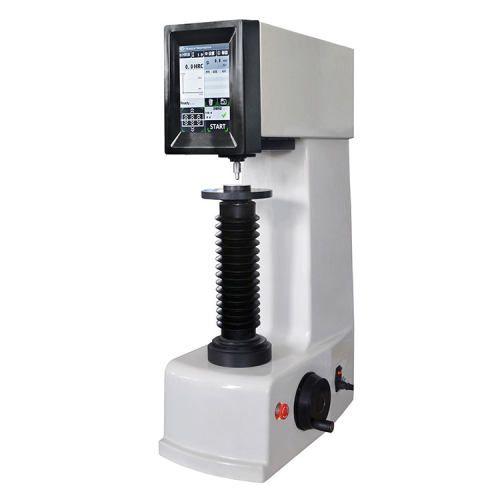The Rockwell Hardness Tester is a versatile tool that can be used to assess the hardness of a wide variety of materials. On the other hand, the material's properties dictate its effectiveness. Here's a breakdown of the types of materials that can be tested with a Rockwell Hardness Tester:
Suitable Materials
l Ferrous metals: This includes iron, steel, cast iron, and low-alloy steel. Because of their high hardness, Rockwell is particularly useful for testing these kinds of materials.
l Non-ferrous metals: Among them are lead, copper, brass, bronze, and aluminum. Brinell or other tests might be more appropriate than Rockwell for softer non-ferrous metals.
l Plastics: Some harder plastics, such as nylon and acrylic, can have their hardness tested with a Rockwell Hardness Tester. But use caution—the indenter may damage softer plastics.
l Ceramics: Certain ceramic materials, such as alumina and zirconia, can be tested for hardness using a Rockwell Hardness Tester. However, this is less common because other tests, such as the Vickers or Knoop, may be more appropriate.
Materials to Avoid
l Very hard materials: The Rockwell Hardness Tester should not be used with materials such as tungsten carbide or hardened steel. Breakage or deformation of the indenter may result in inaccurate readings.
l Very soft materials: The Rockwell Hardness Tester should not be used on very soft materials as the size of the indentation could cause damage to the material.
l Materials with curved surfaces: The Rockwell Hardness Tester is not a good fit for materials with curved surfaces because the indenter cannot fully contact the material, which could lead to inaccurate readings.
l Materials with very high hardness gradients: The Rockwell Hardness Tester should not be used on materials with very high hardness gradients, such as case-hardened or nitrided steel. The total hardness of the material will not be precisely reflected in the indentation's size.
Factors to Consider
l Hardness of the material: The best materials for the Rockwell Hardness Test are those with a Rockwell Hardness Number (HR) of 20 to 100.
l Size and shape of the material: The material should be big enough and shaped in such a way that it can accommodate the indentation size without getting damaged.
l Surface condition of the material: The surface of the material should be perfect and free of any flaws that could affect the accuracy of the test.

